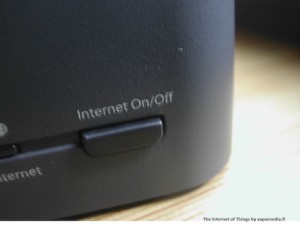
Net Neutrality: Preserving an Open Internet
Background on Net Neutrality Advocacy
The open Internet has created a level playing field and unprecedented opportunities for artists, cultural organizations, and creative entrepreneurs to promote their work or sell their products and services. Internet Service Provider (ISPs) can exert immense control over how Internet users’ access sites and services. Without clear rules of the road, ISPs could potentially stifle users access to lawful content.
In December 2010, the FCC approved its Open Internet Order to preserve “net neutrality”—the principle that allows any Internet user to access the lawful content or application of their choosing without interference from an ISP. However, in January 2014, the U.S. Court of Appeals for the D.C. Circuit overturned portions of the Open Internet Order–but affirmed the FCC’s authority to regulate broadband networks.
Following a public proceeding in 2014, the FCC received more than 4 million individual comments about net neutrality, the majority of which were in support of an established order. In February 2015, the FCC voted on new net neutrality rules. The rules were again challenged in court and in early December 2015, the D.C. Circuit heard oral arguments on the merits of the new rules. A final decision was made in June 2016, upholding the rules.
See the Net Neutrality Statement of Concern for background information and talking points about What’s At Stake.
What's at Stake
Given the broad and bipartisan public support of net neutrality rules, Congress should monitor FCC activity and be prepared to take action to ensure that content creators and everyday users can continue to benefit from the open Internet and the innovations it inspires.
What We're Asking For Right Now
We support responsive congressional efforts that preserve the Federal Communications Commission’s (FCC) ability to preserve an open and accessible Internet while protecting copyrighted content. The viability of the arts and culture communities in the 21st century depends on our ability to compete on a level online playing field.
Recent Activity
House & Senate Hearings on Net Neutrality Legislation
On January 21, the House Energy & Commerce Committee and the Senate Commerce, Science, and Transportation Committee held hearings discussing draft legislation by Sen. John Thune (R-SD) and Rep. Fred Upton (R-6th-MI) that would:
- Prohibit ISPs from blocking and throttling legal content
- Ban paid prioritization
- Ban ISPs from prohibiting the use of non-harmful devices
- Require broadband to be classified as an information service
- prohibit the FCC from using authority under section 706
ISPs would, though, be allowed to offer specialized services, but none that would evade these obligations.
The bill limits the FCC to enforcing these obligations only by adjudicating consumer complaints against ISPs. The agency would not be able to make any rules that would require ISPs to hold to these obligations. If the bill is enacted, the FCC would have 60 days to adopt formal procedures for dealing with consumer complaints.
The bill defines broadband internet as a “mass market retail service” that “provides advanced telecommunications capability” but shall be considered an information service. Broadband “transmits and receives data from all Internet endpoints, including transmissions that enable the operations of communications services.” This definition applies to any other equivalent service.
The bill also states that the FCC or state commissions with regulatory jurisdiction over telecommunications cannot use section 706 as authority over broadband.
New Net Neutrality Proposal Expected Feb. 26
At the Consumer Electronics Showcase on January 7, FCC Chairman Tom Wheeler announced that the agency will vote on a new net neutrality proposal at its open meeting on February 26. Net neutrality—the principle that all users and content providers should have equal access to the internet and that the internet should be a level playing field—has been in debate for years, most recently since January 2014 after a DC district court struck down parts of the agency’s 2010 net neutrality rules.
The FCC received almost four million public comments last summer and fall from advocates weighing in on the direction of the new rules. The debate centers around the agency reclassifying broadband as a telecommunications service under Title II of the Communications Act. With this reclassification, the FCC could regulate broadband just as it does telephone services.
Several sources report that the proposal may reclassify broadband under Title II, but the FCC has not confirmed this. The public can attend the February 26 open meeting, and it will also be webcast on FCC.gov.
Archive
Looking for older information on this issue? Please visit the Archive

